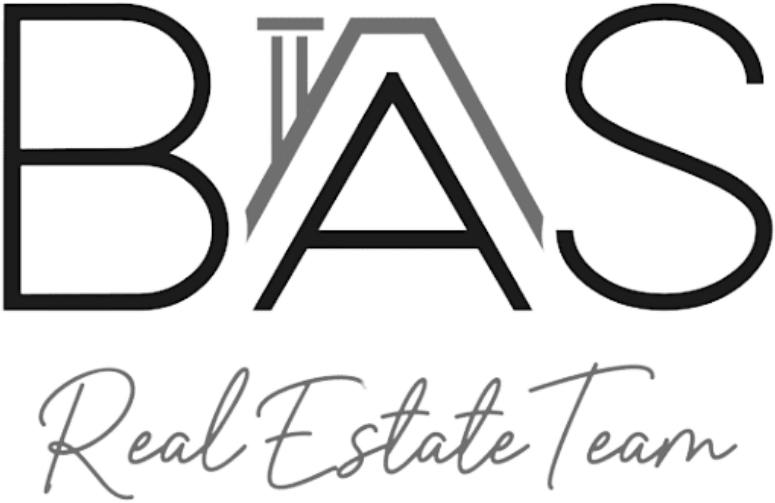Closing on a home involves more than completing final paperwork—it comes with a variety of expenses that buyers need to prepare for. These closing costs are essential to transferring ownership from the seller to the buyer and can vary widely depending on the location, loan type, and purchase terms. Buyers often encounter fees related to loan processing, title insurance, property appraisals, and escrow services, in addition to taxes and prepaid expenses. Without proper preparation, these costs can add up quickly, so it’s crucial to have a clear understanding of what they include.
Planning helps ensure that the closing process goes smoothly. Some expenses are paid directly at the closing table, while others might be collected in advance. Working closely with your lender and reviewing the closing disclosure will give you a comprehensive breakdown of what is owed before signing the final documents. With these insights, buyers can feel confident knowing exactly how much they’ll need to finalize their purchase.

Loan Origination Fees and Mortgage Costs
The loan origination fee covers the lender’s administrative work in processing the mortgage, typically ranging between 0.5% and 1% of the loan amount. This charge compensates the lender for underwriting the loan and ensuring the borrower meets the loan qualifications. In addition to the origination fee, lenders may charge for other services such as loan application processing, document preparation, and securing a credit report. If the buyer chooses to lock in a specific interest rate before closing, a rate-lock fee may also apply, especially if the lock period extends beyond typical timelines.
Some buyers elect to purchase discount points, which allow them to reduce the loan’s interest rate by paying more upfront. Each discount point costs 1% of the total loan amount and typically lowers the interest rate by 0.25%. Though these points increase closing costs, they can provide long-term savings by reducing monthly mortgage payments. Buyers should evaluate whether it makes sense to invest in points based on their financial goals and how long they plan to stay in the home.
Finally, buyers should ask their lender for a Loan Estimate early in the process. This document outlines the expected costs associated with the mortgage, giving buyers a chance to compare offers and avoid hidden fees. Careful review of multiple loan offers ensures buyers can make informed decisions that align with their budget.
Title Insurance and Escrow Fees
Title insurance is essential for protecting buyers and lenders from legal issues related to the property’s ownership history. Title searches verify that the seller holds clear ownership and that there are no liens, unpaid taxes, or other claims that could complicate the sale. If a dispute arises after the sale, title insurance ensures that both the buyer and lender are covered. There are two types of policies: the owner’s policy, which protects the buyer, and the lender’s policy, which the mortgage provider usually requires. The cost of title insurance varies but is often tied to the property’s value and local market standards.
Escrow fees are another closing cost to consider. An escrow company or attorney handles the funds and documents throughout the transaction, ensuring all financial and legal obligations are met before the property changes hands. The escrow officer collects funds from the buyer, such as the down payment and closing costs, and disburses them to the appropriate parties when everything is in order. Escrow fees are typically split between the buyer and seller, though regional practices may differ.
The escrow process adds a layer of security, ensuring that neither party can access the funds or complete the sale without fulfilling all contractual requirements. This neutral handling of the transaction provides peace of mind to both buyers and sellers, knowing the transaction will proceed smoothly. Buyers should review the escrow agreement to understand how fees are allocated and make sure they budget accordingly.
Appraisal, Inspection, and Survey Fees
Appraisals play a crucial role in the home-buying process by ensuring the property’s market value aligns with the loan amount. Lenders require an appraisal to confirm that the home is worth what the buyer has agreed to pay. Appraisers evaluate comparable sales in the area, the property’s condition and market trends to arrive at an unbiased value. Appraisal costs typically range from $300 to $600, though this amount can increase if the property is large, unique, or requires a rush evaluation.
A home inspection is another critical step, offering buyers insight into the property’s condition before closing. A standard inspection covers the home’s structural components, electrical systems, plumbing, and HVAC. Inspection fees generally range from $300 to $500, but specialized inspections—such as mold, radon, or pest inspections—may add to the total cost. Though lenders do not always require inspections, they are highly recommended to avoid unexpected repair expenses after closing.
In some transactions, a property survey may be necessary to confirm boundary lines and identify any encroachments or easements. This step ensures the buyer understands the property’s exact boundaries and that there are no disputes with neighboring properties. Survey costs typically range from $400 to $700, depending on the size and complexity of the lot. Together, appraisals, inspections, and surveys protect the buyer’s investment by ensuring the home meets expectations and aligns with the agreed-upon terms.
Prepaid Costs: Taxes, Insurance, and Interest
Prepaid costs include property taxes, homeowners’ insurance, and mortgage interest, which are often due at closing to ensure a smooth transition into homeownership. Property taxes are prorated, meaning the buyer may need to reimburse the seller for taxes the seller has already paid for the remainder of the year. Additionally, some lenders require buyers to prepay several months of taxes into an escrow account, which will be used to cover future tax payments.
Homeowners insurance is another prepaid cost required by most lenders to protect the property from damage or loss. Buyers must typically pay the first year’s premium upfront before the mortgage can be finalized. If the down payment is less than 20%, private mortgage insurance (PMI) may also be required, increasing the buyer’s initial expenses. PMI protects the lender in case the buyer defaults on the loan and is charged monthly or as a lump sum at closing.
Interest on the mortgage accrues from the closing date to the end of the month, and lenders usually require this amount to be paid at closing to align the mortgage payment schedule. Prepaid costs can add a significant amount to the closing total, so buyers should confirm these amounts early in the process to avoid surprises. Understanding these upfront obligations helps buyers manage their cash flow effectively during the transition into their new home.
Recording Fees and Transfer Taxes
Recording fees and transfer taxes are necessary to make the property transfer official in the eyes of local government authorities. Recording fees cover the cost of filing the deed and mortgage documents with the county or city where the property is located. These fees vary widely by region, typically costing between $50 and $300, though some areas charge more. Buyers should ensure they understand the local recording requirements to avoid delays.
Transfer taxes may also apply, depending on state and local regulations. These taxes are usually calculated as a percentage of the purchase price or as a flat fee. In some areas, transfer taxes are shared between the buyer and seller, while in others, one party covers the full amount. Negotiating who pays transfer taxes can be part of the overall purchase agreement, especially in competitive markets.
Though often overlooked, recording fees and transfer taxes are essential to completing the sale and securing the buyer’s ownership rights. These charges fund the administrative processes that make the sale official, including public record updates. Buyers should include these costs in their budget, as they are typically non-negotiable and required for the legal transfer of ownership. Knowing what to expect ensures there are no last-minute surprises at the closing table.
Ready to Close? Let's Make It Happen
Closing costs play an essential role in finalizing your home purchase, covering everything from lender fees to taxes and prepaid expenses. Being prepared for these expenses helps you stay on track financially and ensures a smooth closing experience. When you’re ready to move forward with your home-buying plans, reach out to me. I’ll be happy to guide you through each step, making sure you’re fully prepared and informed every step of the way.
